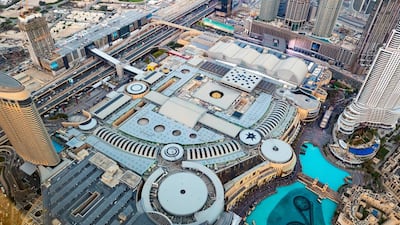Dubai's consumer confidence index remained relatively high in the third quarter of 2019, with both Emiratis and expats expressing confidence about the state of the jobs market amid signs of an improvement in both the tourism and trade sectors.
Dubai's Department of Economic Development (DED) said its Consumer Confidence Index (CCI) score for the three months ending September 30 stood at 137, which was only marginally below the 139 points level reported for the second quarter of the year in October. This indicates "a high level of optimism and a brighter outlook" for the economy, it said in a statement.
“Certainly, there are factors that will boost optimism in the coming months, including the steps taken by the government to reassure people, ensure happiness among all segments of the society, and accelerate economic growth," said Mohammed Lootah, chief executive of DED's Commercial Compliance and Consumer Protection sector.
The survey showed 84 per cent of Emiratis were optimistic about job prospects in the quarter, while 56 per cent of expats described the jobs market as 'good' and 13 per cent described it as "excellent".
Job prospects for the next 12 months were described as “excellent” by 52 per cent of Emiratis and 32 per cent of expats, while 43 per cent of expats said prospects were “good”. In general, the chances of finding a job were rated as "excellent" for 38 per cent of respondents and "good" for 42 per cent, matching perceptions shared in the second quarter.
“One of the most important facts revealed by the survey is that over 80 per cent of consumers are optimistic about the employment situation improving in the next 12 months,” Mr Lootah said.
Although consumer perceptions on the overall economy declined marginally, 77 per cent of respondents remained positive on their current personal financial situation, a figure which rises slightly to 78 per cent on the 12-month outlook.
Overall, 67 per cent of respondents were optimistic about the overall economic situation, down 1 per cent in the second quarter.
Insufficient work opportunities and a lack of salary increase were among the main reasons given for negative perceptions on the economy, but 77 per cent of consumers felt that the situation would turn either to "excellent" or "good" within the next 12 months.
A separate report by accountancy body ICAEW and research firm Oxford Economics on Monday predicted growth across the UAE would pick up next year to 2.2 per cent, from 1.9 per cent this year. It expects non-oil GDP growth will accelerate in 2020 to 2.8 per cent on the back of increased activity around Dubai's Expo 2020 event, which could contribute up to 1.5 per cent of overall GDP next year, as well as activities by UAE authorities to stimulate non-oil growth.
"The expansion in non-oil activity is slowly beginning to translate into job creation, although at a modest rate. Total employment in the private sector increased by 1 per cent year-on-year in Q2 2019, up from just 0.1 per cent in Q1," ICAEW's report said. Jobs have been gained in the tourism and real estate sectors, but have been lost in others including construction, services and manufacturing, it added.
Calculating the legacy of Expo 2020 would be difficult, the report said, but added the investment climate currently seems positive as infrastructure is upgraded ahead of the event.
"In 2019, the UAE has attracted $12.7bn in foreign direct investment in the first half of the year, an increase of 135 per cent year-on year — while tourist arrivals rose 3 per cent in the same period to reach 8.4 million."
Overall, the report forecasts that non-oil GDP across the wider Middle East is set to grow at 2.8 per cent next year, from 2.2 per cent this year supported by higher government spending.
"We believe there is plenty of room for improvement. To achieve a more diverse and sustainable economy, regional governments must remain proactive in implementing the necessary fiscal reforms aimed at achieving economic diversification, and continue to support their economies with pro-growth initiatives," said the ICAEW's Middle East, Africa and South Asia (MEASA) regional director Michael Armstrong.

